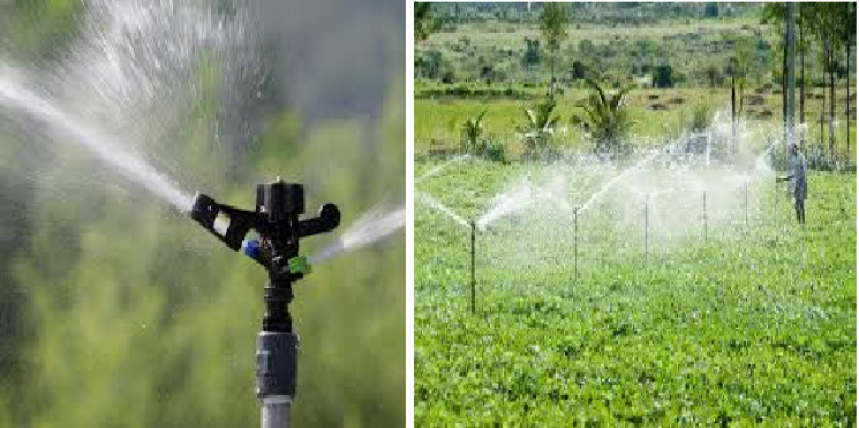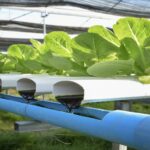Modern irrigation methods for smallholder farmers

In many developing regions, smallholder farmers face increasing challenges caused by irregular rainfall, prolonged dry seasons and climate change. To maintain productivity and ensure consistent crop yields, modern irrigation systems have become essential tools for improving efficiency, conserving water and boosting income. These systems allow farmers to grow crops year-round, even in areas with limited or unpredictable rainfall, transforming traditional farming into a more reliable and sustainable venture.
Drip irrigation systems
Drip irrigation is one of the most widely adopted and efficient irrigation techniques among smallholder farmers. It involves supplying water directly to the root zone of each plant through a network of tubes and emitters. This targeted approach ensures that every drop of water is used effectively, minimizing waste through evaporation or runoff.
Drip systems have proven especially beneficial for vegetable and fruit production, where consistent moisture is essential for high yields. They can be powered by gravity or solar pumps, making them ideal for rural areas with limited electricity. Over time, drip irrigation reduces labor demands and improves plant health, leading to better-quality produce and higher profits.
Sprinkler irrigation
Sprinkler irrigation mimics natural rainfall by distributing water through pressurized nozzles that spray water over crops. This method provides uniform water coverage, which is particularly useful for cereal crops, pastures and horticultural farms.
Modern sprinkler systems are easy to operate, portable, and adaptable to different soil types. Many farmers prefer them because they can irrigate large areas in a relatively short time. With proper management, sprinklers help maintain soil moisture, enhance plant growth and reduce the risk of soil erosion caused by uneven watering. Some systems even incorporate solar-powered pumps, reducing the cost of operation and supporting eco-friendly farming.
Solar-Powered irrigation systems
Access to electricity remains a challenge for many smallholder farmers, especially in remote rural areas. Solar-powered irrigation systems offer a sustainable and affordable alternative by using energy from the sun to power water pumps. These systems can draw water from boreholes, rivers or reservoirs and distribute it to the fields through drip or sprinkler networks.
The use of solar energy reduces dependence on expensive diesel fuel and eliminates greenhouse gas emissions. It also enables farmers to irrigate during dry seasons without worrying about high energy costs. Across Africa, solar irrigation is gaining popularity as governments, NGOs and private organizations invest in clean energy solutions for agriculture. By combining renewable energy and modern irrigation technology, farmers can increase productivity while protecting the environment.
Micro-Irrigation systems
Micro-irrigation is a modern system that applies water in small, frequent quantities to maintain consistent soil moisture around plant roots. It blends the principles of drip and sprinkler irrigation, ensuring precise water control and minimal waste.
This method is ideal for high-value crops such as tomatoes, onions, and strawberries that require careful moisture management. Micro-irrigation systems can also be integrated with fertigation techniques, allowing farmers to mix fertilizers with irrigation water for even nutrient distribution. The result is healthier plants, higher yields and more efficient use of both water and fertilizer resources.
For smallholder farmers working with limited water supplies, micro-irrigation represents a smart and sustainable way to improve farm productivity while maintaining soil health.
Subsurface irrigation
Subsurface irrigation involves supplying water below the soil surface through buried pipes or drip lines. This system delivers moisture directly to plant roots, minimizing evaporation losses and preventing water contact with the leaves.
Because it eliminates surface wetting, subsurface irrigation helps control weed growth and reduces the spread of diseases that thrive in humid environments. Although the initial installation cost can be high, the long-term benefits make it a worthwhile investment for serious farmers. It is particularly effective for greenhouse production and regions facing severe water shortages.
This method ensures that crops receive consistent hydration even during the hottest periods, promoting steady growth and maximizing yields.
The role of technology in modern irrigation
Technological advancements are revolutionizing modern irrigation practices for smallholder farmers. Smart irrigation systems now incorporate soil moisture sensors, timers and automated controls that regulate water delivery based on real-time soil and weather data.
Through mobile apps and Internet of Things (IoT) devices, farmers can monitor water usage, detect leaks and schedule irrigation remotely. These innovations ensure that crops receive the right amount of water at the right time, reducing waste and optimizing productivity. As digital agriculture continues to grow, smallholder farmers can benefit from affordable and scalable solutions that simplify irrigation management.
Modern irrigation methods have become essential in improving productivity and sustainability among smallholder farmers. Techniques such as drip, sprinkler, solar-powered, micro and subsurface irrigation are helping transform agriculture by making it more efficient, water-smart and resilient to climate challenges.
By adopting these technologies, smallholder farmers can increase yields, reduce labor and ensure consistent food production throughout the year. The future of farming lies in innovation and with modern irrigation systems, even small-scale farmers can thrive in a changing world.










